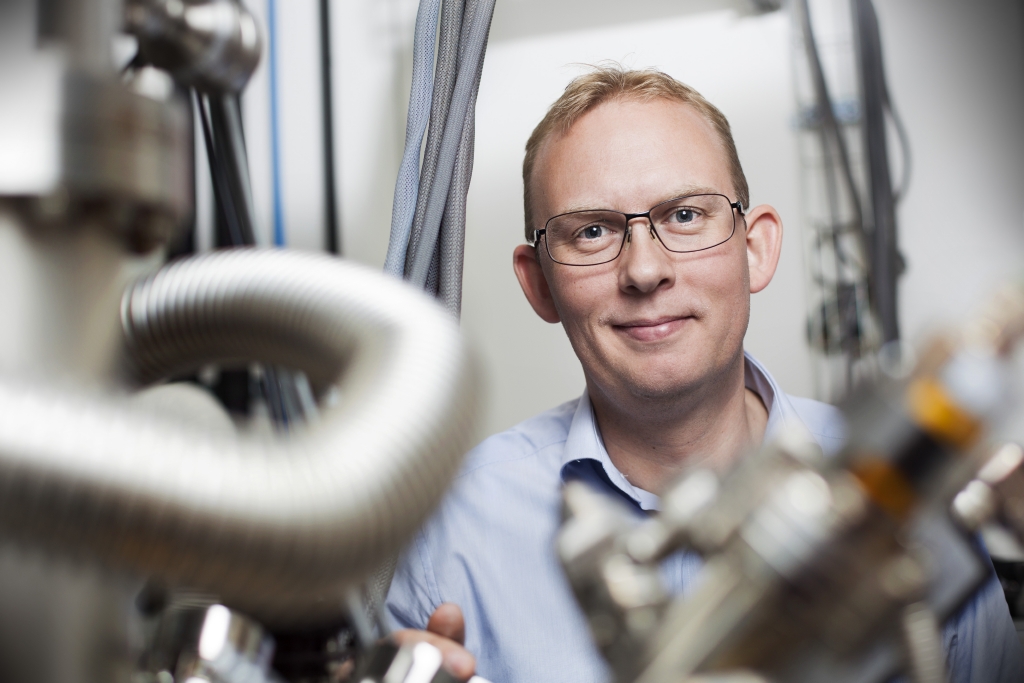The aviation fuel of the future is made from wood waste and green hydrogen.
Fuel from liquid hydrocarbons as we know them, but made completely without the use of fossil resources. This is the goal of a new project partnered by AU researcher, in which the Innovation Fund Denmark has just invested DKK 26.7 million.


While the green electrification of cars is happening at impressive speeds, it is otherwise problematic with solutions for air traffic and heavy truck transport. The solution may be to make fuels based on well-known, but CO2 neutral, hydrocarbons in the form of pyrolysis oil made from organic residues from land and forestry.
- The potential for using pyrolysis oil is huge worldwide, as many types of locally produced organic waste can be used. Many pieces are in place to be able to produce fuel from pyrolysis oil on a large scale, and the Danish Parliament has already allocated resources to the development of pyrolysis technology in Denmark. But we lack an efficient process that can convert the crude pyrolysis oil into a fuel that can be used in a modern engine, says Jostein Gabrielsen, R&D Director at Haldor Topsøe A /S.
Know-how and new knowledge are combined
Pyrolysis oil is a brownish liquid that is reminiscent of the crude oil we make fuel from today. However, the oil is more difficult to treat and the content of impurities, especially oxygen, a problem for further use. The HyProFuel project aims to develop a catalytic reactor that can solve this problem.
- The project partners have for many years successfully worked with similar technology to purify oils of polluting sulfur and nitrogen. At the same time, there is already a commercial technology at Alfa Laval A/S and Haldor Topsøe A/S that can convert simpler vegetable oils into fuel. This is the know-how we bring into play here together with new knowledge about catalytic materials and the composition of the pyrolysis oil, says Professor Jeppe V. Lauritsen from Aarhus University.
The process can be integrated with existing oil refineries, which can thus in the long run restructure their production. At the same time, considerable amounts of hydrogen are used, which are stored in the hydrocarbons, and the process can thus also function as an efficient buyer of green hydrogen.
- If the development is successful, it is realistic to see the first production of fuel from pyrolysis oil by 2030, adds Jostein Gabrielsen.
The project is a collaboration between three Danish universities (Aarhus University, Technical University of Denmark and University of Copenhagen) together with the companies Haldor Topsøe A /S, Alfa Laval Copenhagen A /S, Equinor ASA, Kalundborg Raffinaderi and the Dutch pyrolysis company BTG Bioliquids.
Read also the article about the project in Ingeniøren: https://ing.dk/artikel/danske-forskere-jagter-katalysatoren-goer-pyrolyseolie-flybraendstof-256508
Facts
The Innovation Fund's investment: DKK 26.7 million kr.
Total budget: 42.2 million kr.
Duration: 4 years
Official title: HyProFuel - Hydroprocessing Sustainable Fuels for Aviation and Heavy Transport
For further information, please contact
Professor Jeppe Vang Lauritsen
Interdisciplinary Nanoscience Center (iNANO)
Aarhus University
Mail: jvang@inano.au.dk
